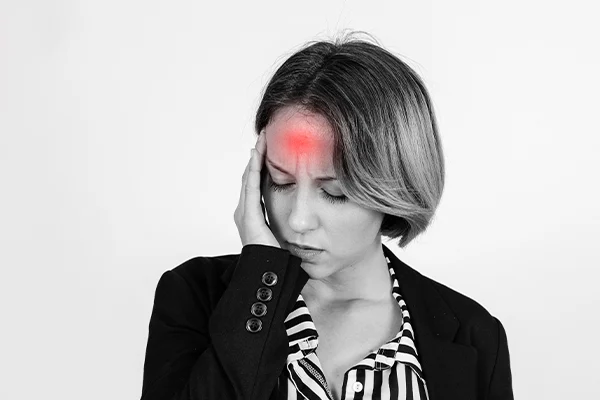Last Updated on September 26, 2022
Introduction:
Is COPD Contagious? It is one of the most frequently searched questions regarding Chronic Obstructive Pulmonary Disorder (COPD). COPD is a respiratory disorder that entails two respiratory conditions, Emphysema and Chronic Bronchitis. COPD makes breathing difficult along with other respiratory symptoms that will be discussed later in this blog. It is assumed to affect 16 million people in the US. The target age group for COPD is 45 years and above. It is important to note that if left untreated, COPD can cause severe damage to the lungs.
This blog focuses on discussing the signs and symptoms, causes, and complications, and will answer frequently asked questions such as, whether is COPD contagious, etc.
Is COPD Contagious: What is COPD?
Due to the chronic inflammatory lung disease called Chronic Obstructive Pulmonary Disease (COPD), airflow from the lungs becomes restricted. The signs and symptoms include gasping, coughing up mucus, and problem breathing. It is frequently caused by prolonged exposure to irritant gases or particulates, most frequently from cigarette smoke.
As previously mentioned, the two most frequent diseases that are associated with COPD are Emphysema and Chronic Bronchitis. The severity of these two conditions might vary among people with COPD and they typically coexist.
Inflammation of the bronchial tube lining, which transports air to and from the lungs’ air sacs (alveoli), characterizes chronic bronchitis. Daily coughing and mucous are its explicative symptoms.
Emphysema is a disorder — when the alveoli at the end of the lungs’ tiniest air tubes, or bronchioles, are destroyed due to harmful exposure to cigarette smoke and other irritating chemicals and particulate matter.
Even though COPD is a chronic, advancing disease that worsens with time, it is treatable. Most COPD sufferers can obtain good symptom control, high quality of life, and a lower chance of developing additional comorbid illnesses with adequate care.
Stages: Is COPD Contagious?
Different methods are utilized to grade COPD. One of these is the GOLD classification. It aids in determining the severity of COPD and also helps doctors come up with the best treatment plan.
The 4 grades of COPD are:
- Grade 1: Mild
- Grade 2: Moderate
- Grade 3: Severe
- Grade 4: Very severe
This classification is established on the spirometry test result of FEV1. It also takes into account the individual symptoms and history. Based on these findings, your doctor may be able to prescribe you the most suitable treatment options.
What are the Causes of COPD?
Many people often have a question in mind about whether is COPD contagious. The answer is, COPD is a progressive condition. It has multiple risk factors and causes, but the condition is not contagious. The lungs are inflamed, swollen, and damaged in individuals affected with COPD. The causes of COPD include:
- Fumes,
- Dust,
- Genetics,
- Smoking, and
- Asthma.
Although Asthma and COPD are two different conditions, many of their symptoms are similar which can make diagnosis difficult.
What are the Symptoms of COPD?
Major symptoms of COPD include:
- Breathlessness,
- Chesty cough,
- Recurring chest infections,
- Wheezing,
- Weight loss,
- Fatigue,
- Chest pain, and
- Swollen ankles.
Is COPD Contagious?
COPD is not contagious. However, there are different causes and risk factors that play a major role in causing COPD. These include smoking, pollutants, and genetics.
Diagnosis of COPD:
As discussed earlier, COPD is a progressive condition, that gradually advances and problematizes with time. Due to this reason, it is often misdiagnosed until the condition is severe.
To diagnose COPD, the physician will perform a routine clinical examination which includes keeping track of the signs and symptoms, history, and frequency of exposure to irritants including smoking. They may further prescribe some tests, such as:
Lung Function Test:
These examinations check your ability to breathe in and out as well as how well your lungs can oxygenate your blood. To measure how much air your lungs can contain and how quickly they can expel it, you blow into a big tube that is attached to a small machine during the most typical test, known as spirometry. The six-minute walk test, pulse oximetry, and evaluation of lung volumes and diffusing capacity are additional examinations.
Chest X-Ray:
It is an excellent tool to diagnose emphysema, one of the major causes of COPD. It is also helpful to rule out other lung conditions.
CT Scan:
It helps diagnose lung cancer and emphysema.
Arterial Blood Gas Analysis:
This tests the functioning of the lungs, and how well the lungs are bringing oxygen into the blood and removing carbon dioxide.
Lab Tests:
Although lab tests aren’t used to diagnose COPD, they may be used to identify the origin of your symptoms or negate the presence of other diseases. For instance, lab testing may be done to identify genetic disorders like alpha-1-antitrypsin deficiency, which in some cases may be the cause of COPD. If you have COPD at an early age and have a family history of the disease, you might undergo this test.
Prevention of COPD:
One of the best ways to prevent COPD is to never start smoking. Smoking is one of the leading causes of COPD that can cause severe complications if not managed in time. To reduce the risk of developing COPD, some of the ways that can be helpful are:
- Eat a healthy balanced diet
- Avoid exposure to irritants like fumes and chemicals, smoke, pollutants
- Keep the area where you spend most of the time, clean
- Try to avoid large crowds during Flu season
- Quit smoking
- Stress management
- Enough sleep and rest
- Maintain appropriate hygiene to avoid getting infections
- Sustain a healthy weight
Treatment Options for COPD:
Some of the treatment options for COPD include:
- Bronchodilators,
- Supplemental oxygen,
- Corticosteroids, and
- Antibiotics.
The Prognosis for COPD:
The severity of COPD varies from person to person depending on the symptoms. It advances at a different rate for everyone. COPD can not be cured but can be managed with lifestyle modifications.
Outlook:
COPD causes lung damage that can not be reversed. It can only be managed by adopting a healthy lifestyle and avoiding triggers that could potentially exacerbate your condition. It is vital to keep an eye on your symptoms and report to your physician if you notice any changes in your breathing pattern. By learning simple management techniques you can live a quality and normal life.
Learn more about COPD Clinical Trials conducted in Michigan for both smokers and non-smokers, in search of a potential treatment option for this crippling condition.




